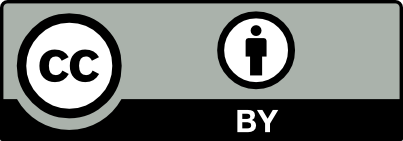Dilemmas and challenges for commercialization of artisan cheese in Brazil
DOI:
https://doi.org/10.22239/2317-269X.00617Keywords:
Culture, Traditional Knowledge, Commerce, Food Health Legislation, Sanitary SurveillanceAbstract
The importance of traditional food products – such as beverages, flour, fruit jams and pastes, and cheese locally produced and linked to traditional know-how created and recreated through the time – has become evident in contemporary debates related to rural issues. The empiric universe of this study is the Serrano Cheese from Rio Grande do Sul, a state in the south of Brazil, and the Serro Cheese from Minas Gerais, a state in the southeast of the country. Based on an ethnographic method, this research has as purpose to understand how the flow and trade processes of these cheese systems take place as well as the possibilities and limitations imposed by Brazilian health legislation. Although there are laws that aim to bring the cheese to formality, they are still disconnected from the reality of the traditional cheese production systems. Thus, informality is a major characteristic of the trade of these two studied systems.Downloads
Downloads
Published
Issue
Section
License
Copyright (c) 2016 Health Surveillance under Debate: Society, Science & Technology (Vigilância Sanitária em Debate: Sociedade, Ciência & Tecnología) – “Visa em Debate”

This work is licensed under a Creative Commons Attribution-NonCommercial-NoDerivatives 4.0 International License.
COPYRIGHT ALLOWANCE The author (s) hereinafter designated as the ASSIGNOR hereby assign and transfer, free of charge, the ownership of the copyrights related to this ARTICLE to the Vigilância Sanitária em Debate: Sociedade, Ciência & Tecnologia (Health Surveillance under Debate: Society, Science & Technology) – Visa em Debate, represented by FUNDAÇÃO OSWALDO CRUZ, established at Av. Brasil, nº 4365, Manguinhos, Rio de Janeiro, RJ, Brazil, CEP 21045-900, under the conditions set out below: (a) The terms and conditions set forth in this Agreement shall apply to the following: 1. The ASSIGNOR declares that they s(he) is (are) the author (s) and owner (s) of the copyrighted property of the ARTICLE submitted. 2. The ASSIGNOR declares that the ARTICLE does not infringe the copyrights and / or other property rights of third parties, that the disclosure of images (if any) has been authorized and that they s(he) assume(s) full moral and / or property liability for its content, before third parties. 3. THE ASSIGNOR assigns and transfers all copyrights relating to the ARTICLE to the ASSIGNEE, especially the rights of editing, publication, translation into another language and reproduction by any process or technique. The ASSIGNEE becomes the exclusive owner of the rights related to the ARTICLE, and any reproduction, totally or partially, is prohibited in any other means of publicity, printed or electronic, without prior written authorization from the ASSIGNEE. 4. The assignment is free and, therefore, there will be no remuneration for the use of the ARTICLE by the ASSIGNEE.







